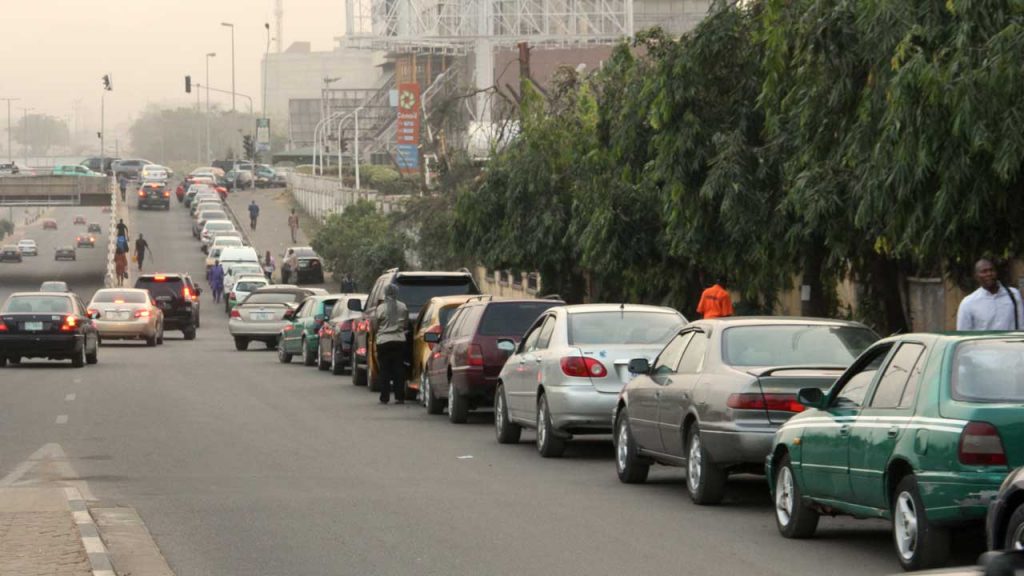Re-emergence of Fuel Scarcity in FCT: Social Action Calls for the Rehabilitation of Refineries

A Civil Society Organization, Social Action has called on the Federal government of Nigeria to rehabilitate the ailing and comatose petroleum refineries as a strategy to curbing the re-emergence of fuel scarcity in the country.
The call came on the heels of the third phase of fuel scarcity of the year at the Federal Capital Territory, Abuja.
In a press statement signed and made available to newsmen by the Communications Officer, Social Development Integrated Centre, Social Action, Comfort Agbebaku, the organization noted that although the fuel crisis in Abuja started in 2021 following the government’s announcement of its intention to remove subsidy on the Premium Motor Spirit (PMS), a major shortage of the product hit the country again in February 2022.

Social Action noted that this development which caused a lot of discomfort to Nigerians in major cities like the FCT, Lagos and Port Harcourt was due to the discovery of high amounts of methanol in refined products reportedly imported from Belgium by syndicates of the NNPC limited.
The organization stated that the crisis which lingered for months, re-surfaced in Abuja in May and again in June this year adding that the recent scarcity according to the Independent Petroleum Marketers Association of Nigeria (IPMAN) is due to the high cost of transporting the product from the port. Social Action added “This scarcity has led to an increase in price as black marketers take the opportunity to make brisk business at a high cost to the detriment of the people as most filling stations remain closed. This has increased the cost of transportation and the cost of goods and services in the city, making life unbearable for the masses.
“The generality of the Nigerians are displeased with the situation and worry that the attention focused on politics and political activities would prevent the government from giving the situation the proper attention that it deserves.
” The question as to the current situation of the four government-owned refineries in the county has bugged many concerned citizens. This is particularly so, considering the fact that $396 million has been spent on the maintenance of refineries in 6 years of this administration, yet the country is unable to boast of refined products to meet local demand.
“This preposterous expenditure indicates that the ‘dead’ refineries are used to drain the national purse through corrupt practices in the name of maintaining the comatose oil installations. We had thought that the privatization of the NNPC would reposition it for better and quality service delivery but it seems what really changed was nothing more than nomenclature.”
The organization called on the Nigerian President, Muhammadu Buhari to honour his word by seeing to the rehabilitation of our oil refineries before he leaves office in a couple of months.
Social Action recalled that when President Buhari campaigned for office in 2015, he promised to revive and reactivate the (then) minimally performing refineries to optimum capacity; with emphasis that he will make the industry and Nigeria one of the world-leading/cutting edge centres for clean oil and gas technology.
The organization pointed out that the President had also promised to enforce the government’s master plan for oil companies to end gas flaring that pollutes the air and damages the communities and people’s health and ensures that they sell at least half of their gas produced within Nigeria.
Social Action also called on the NNPC Limited to live up to its mandate as specified by the Petroleum Industrial Act in preventing the incessant scarcity of refined products in the FCT and across the country to avoid the attendant social and economic quagmire often associated with it.
The organization added “This could only be achieved by making the refineries active and productive and also building more in addition to the ones available to satisfy local consumption first, and then for export. This will not only, naturally, expunge the need for subsidy of the product but also save the nation more foreign exchange for the development of other sectors and expand the income nets.”









